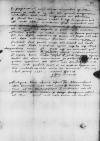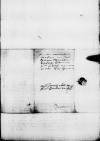List #606
Ioannes CAMPENSIS (Jan van CAMPEN) do Ioannes DANTISCUSLeuven (Lovanium), 1531-03-31
| odebrano Ghent (Gandavum), [1531]-04-22 Rękopiśmienne podstawy źródłowe:
Publikacje:
| ||||||||||
Tekst + aparat krytyczny + komentarz Zwykły tekst Tekst + komentarz Tekst + aparat krytyczny
Multis nominibus clarissimo viro
Salutem.
Pergas, Domine mi, mecum certare muneribus, ego cedam harena et orabo te, ut alium tibi quaeras antagonistam. Maluissem, crede mihi, imagiunculam tui plumbeam quam sericum hoc maximo emptum. Si ergo Campensem tuum esse velis, abstine a mittendis, quaeso, muneribus; non enim amicitiam tuam ambivi munerum spe, sed fama nominis tui in amorem me perpulit et quoad vixero continebit. Temptavi apud quosdam ex nostris medicis, ut faciant, quod cupis, sed tam frigide respondent, ut putem eos scripto nihil acturos. Dixit mihi decanus facultatis medicinae doctores sententiam suam paucis verbis domino
Tuus, quantus est,
Postscript:
Reliquit hinc abiens apud me dominus

